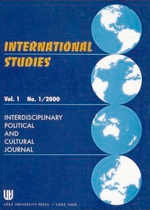FEMALE CROSS-DRESSING IN CHINESE LITERATURE CLASSICS AND THEIR ENGLISH VERSIONS
FEMALE CROSS-DRESSING IN CHINESE LITERATURE
CLASSICS AND THEIR ENGLISH VERSIONS
Author(s): Anna Wing Bo TsoSubject(s): Social Sciences, Language and Literature Studies, Gender Studies, Studies of Literature, Sociology, Other Language Literature
Published by: Wydawnictwo Uniwersytetu Łódzkiego
Keywords: Female cross-dressing; gender role; parody; performativity; patriarchal hegemony
Summary/Abstract: Cross-dressing, as a cultural practice, suggests gender ambiguity and allows freedom of self expression. Yet, it may also serve to reaffirm ideological stereotypes and the binary distinctions between male and female, masculine and feminine, homosexual and heterosexual. To explore the nature and function of cross-dressing in Chinese and Western cultures, this paper analyzes the portrayals of cross-dressing heroines in two Chinese stories:《 木木木》 The Ballad of Mulan (500–600 A.D.), and 《 梁梁梁梁梁梁台》The Butterfly Lovers (850–880 A.D.). Distorted representations in the English translated texts are also explored.
Journal: International Studies: Interdisciplinary Political and Cultural Journal (IS)
- Issue Year: 16/2014
- Issue No: 1
- Page Range: 111-124
- Page Count: 14
- Language: English

